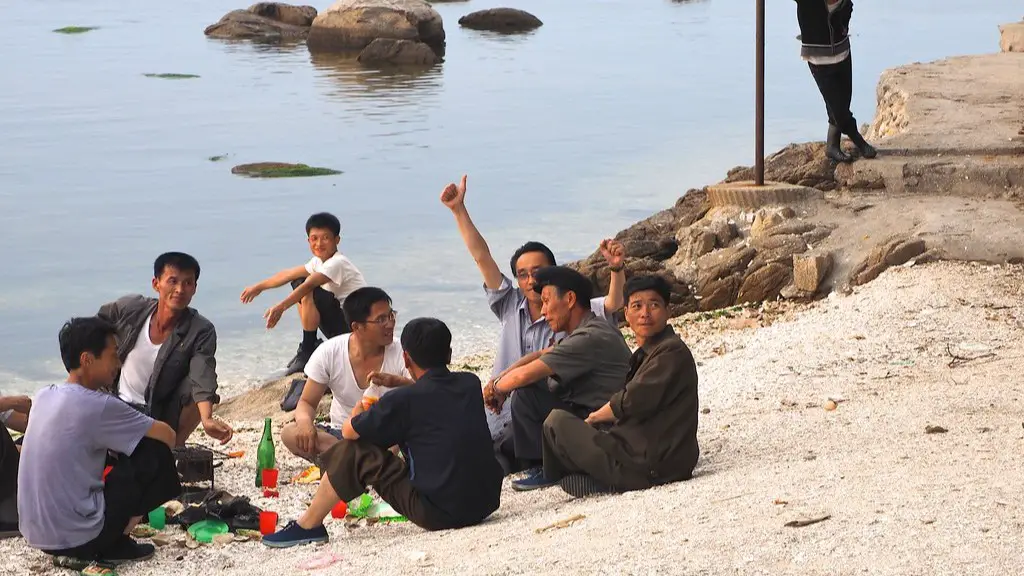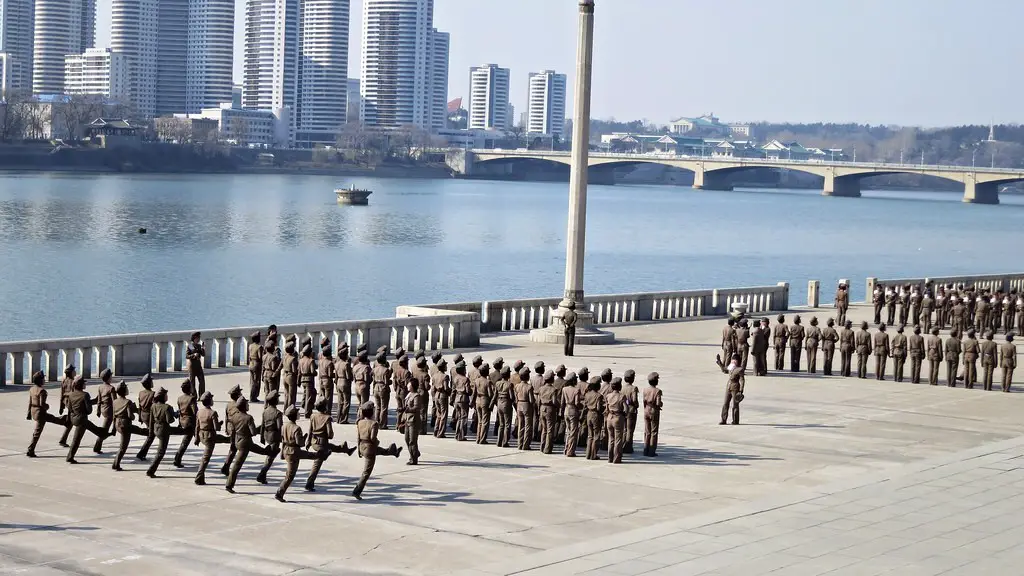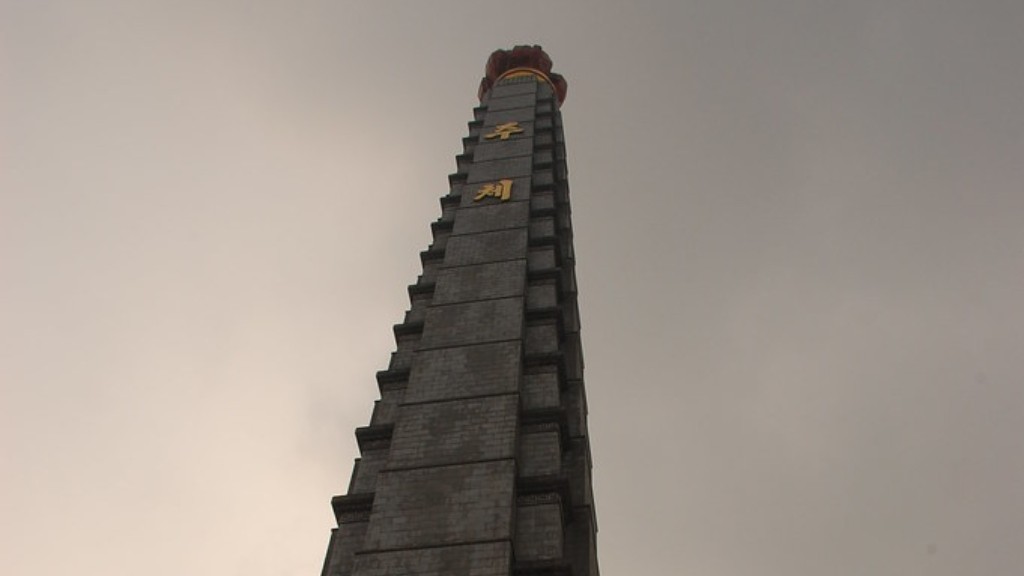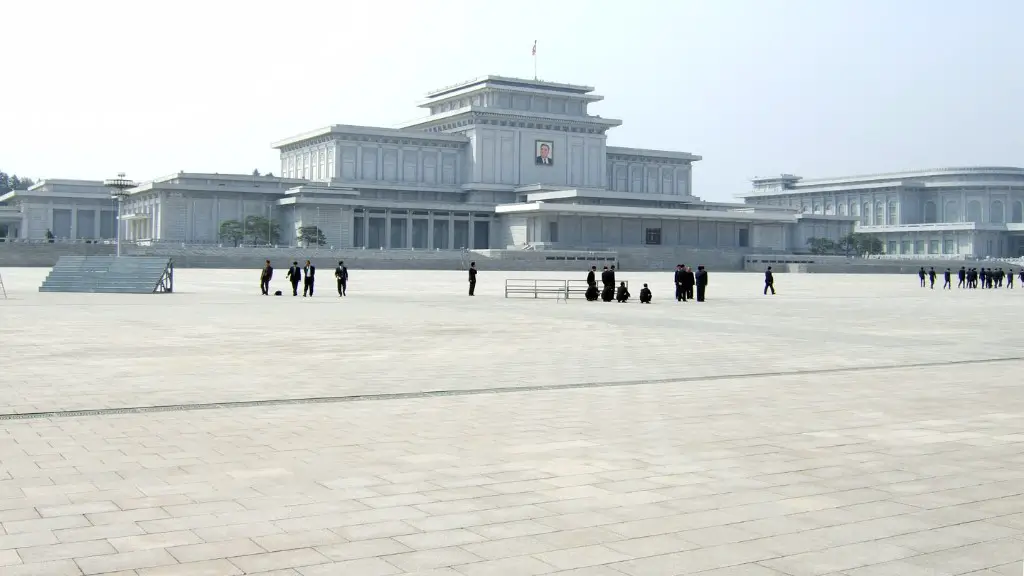Introduction
It has become an increasing concern for the United States to be able to defend itself against the threat posed by North Korea’s nuclear capabilities. North Korea possesses one of the largest stockpiles of nuclear weapons in the world and has regularly threatened to use them against the United States, its allies, or other countries in the region. This has naturally caused a great concern for the United States and many of its allies, and it has prompted questions about whether or not the United States has the capability to shoot down a possible nuclear attack from North Korea.
Historical Context
The United States has long been aware of the danger posed by North Korea’s nuclear weapons program, and has been taking steps to ensure that the country could defend itself in the event of a nuclear attack. The first line of defense is the United States’ missile defense system, which is comprised of several ground and sea-based defense systems designed to intercept incoming hostile missiles before they can reach their targets. This system has been in place since the Cold War, and has been continually upgraded over the years to keep up with advances in technology.
Technical Capabilities
The capabilities of the United States’ missile defense system have been tested in a variety of scenarios over the years, and the results have generally been positive. In 2018, the United States successfully shot down a medium-range ballistic missile in a test conducted in the Pacific Ocean. This test showed that the system is capable of successfully intercepting a missile from North Korea, though further modifications may still be necessary to increase its effectiveness.
Political Considerations
The question of whether or not the United States should shoot down a possible nuclear attack from North Korea is not just a technical one, but also has wider political implications. This is especially true given the precarious state of relations between the United States and North Korea, and the potential for a wider conflict in the region if the United States were to take a too aggressive stance on the issue. As such, any decision to shoot down a possible nuclear attack would need to take into account the wider strategic and geopolitical context in the region.
Expert Analysis
Experts in the field of missile defense and nuclear proliferation view the effectiveness of the United States’ missile defense system differently. Some experts view the system as capable of successfully intercepting an attack from North Korea, though modifications may need to be made to the system in order for it to be truly effective. Others argue that the system is too limited and that there are still too many potential points of failure in the system for it to be trusted as a reliable defense against North Korea.
Human Factor
In addition to the technical and political considerations, there is also the human factor to consider. While the missile defense system may be able to shoot down a potential attack, the decision to do so would ultimately be made by human beings who may be reluctant to take such an action. This human element is perhaps the most difficult to quantify and predict, and could prove to be a major impediment to the US’s ability to successfully intercept and shoot down any attack from North Korea.
Military Implication
The US military is also aware of the threat posed by North Korea, and has been actively preparing for the possibility of a nuclear attack by taking a number of steps, such as increasing military drills in East Asia and improving its information sharing channels with its allies in the region. The US military is also looking into improving its cyber defenses and enhancing its intelligence gathering capabilities in order to better prepare for any potential attack.
Legal Issues
One other factor to consider is the legal implications of shooting down a potential North Korean nuclear attack. While the US may have the technical and military capabilities to do so, shooting down a missile would be considered an act of war and could potentially lead to further conflict between the two countries. As such, any decision to do so would need to take into account international law and the potential consequences of such an action.
International Community
The international community is also monitoring the situation very closely, and is advocating for a peaceful resolution to the tensions in the region. The United Nations Security Council has issued several resolutions over the years, condemning North Korea’s nuclear program and calling for a peaceful solution to the crisis. At the same time, the international community has also offered North Korea diplomatic and economic incentives in exchange for the country’s agreement to abandon its nuclear weapons program.
Domestic Response
The potential threat posed by North Korea has prompted several responses from the US domestic population and has sparked a national conversation on the issue. In particular, there has been a renewed focus on the need for the US to take a more aggressive stance in dealing with North Korea, including the possibility of shooting down any incoming missiles.
US Efforts To Deter A Conflict
While the United States is taking the necessary steps to prepare for any possible attack, it is also aware of the risks of an escalation of tensions in the region. As such, the US is taking a more diplomatic approach to the issue, engaging in a dialogue with North Korea and exerting pressure on the country to abandon its nuclear program. The United States has also offered North Korea security guarantees and economic assistance in exchange for abandoning its nuclear weapons program.
Impact On Other Countries
Any action taken by the United States against North Korea would undoubtedly have an impact on the other countries in the region, as tensions between the two countries could quickly escalate into a wider conflict. South Korea and Japan, in particular, would be at risk of the fallout from any possible conflict, and the United States would need to work closely with both countries to ensure that any action taken is effective in deterring North Korean aggression without destabilizing the region as a whole.
New Technologies
The US is also looking into ways to improve its current missile defense system, including the development of new technologies that could potentially increase its effectiveness. This includes the use of lasers, railguns, and other systems that could intercept and destroy incoming missiles, as well as improved radar systems that could detect a nuclear attack before it is launched. These technologies could potentially provide an improved layer of defense that could be used to deter a nuclear attack from North Korea.
Diplomatic Solutions
At the same time, diplomatic efforts are also ongoing to resolve the situation peacefully. The US and its allies have been pushing for North Korea to resume negotiations with the international community, and for the country to abandon its nuclear weapons program in exchange for economic and security incentives. The US has also been encouraging North Korea to return to the nuclear non-proliferation treaty, which the country withdrew from in 2003.
Summary Of Agreements
To date, there have been several agreements reached between North Korea and the international community, including a joint statement signed in 2018 which called for the complete denuclearization of the Korean peninsula. While this agreement is a step in the right direction, there is still more work to be done to reach a final resolution to the tensions in the region. In the meantime, both the US and its allies will need to remain vigilant and take all necessary steps to ensure that they are prepared to deal with any potential attack from North Korea.



